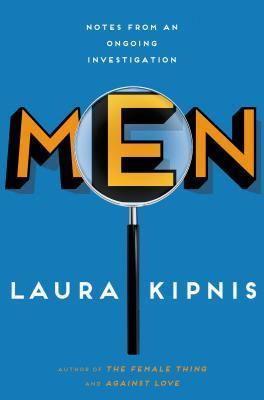What do you think?
Rate this book


224 pages, ebook
First published November 1, 2014
Yes, Dworkin reads like a stampeding dinosaur in our era of bouncy pro-sex post-feminism. Feminist anger isn’t exactly in fashion at the moment: these days, women just direct their anger inward, or carp at individual men, typically their hapless husbands and boyfriends.
Any woman who won’t admit [to Dworkin’s belief that female sexuality is either specifically maligned or magnificently condescended to] just enforces Dworkin’s view that we lose any capacity for self-knowledge and honesty in sex, since to the extent we reconcile ourselves to enjoying it, our brains turn to mush. Worse, women transform themselves into pathetic sex scavengers, wanting sensuality and tenderness but settling instead for “being owned and being fucked” as a substitute for the physical affection and approval we actually crave from men. Women need male approval to be able to survive in our own skins, and solicit it through sex; but obtaining sex means conforming in “body type and behavior” to what men like. Given the vast amount of time, energy, and disposable income many of us invest in achieving and maintaining whatever degree of sexual attractiveness is feasible (sometimes known as “fuckability”), again, it’s hard to argue. Self-knowledge might be the means to really knowing a lover in sex—the only thing that makes passion personal instead of generic—but self-knowledge is impossible for women because having intercourse in the first place requires eroticizing powerlessness and self-annihilation. If the argument seems tautological, you’re getting the point: fucking is a vortex, and abyss, a sinkhole from which you never emerge.The author wraps these points, these heavy points, around a bemused tone torn straight from Elizabeth Bennet’s mouth. Listen closely enough and you can almost hear her rebuking the Austen’s effigy for High Society, stately old Catherine de Bourgh:
Yes, Dworkin reads like a stampeding dinosaur in our era of bouncy pro-sex post-feminism. Feminist anger isn’t exactly in fashion at the moment: these days, women just direct their anger inward, or carp at individual men, typically their hapless husbands and boyfriends. Nevertheless, the theme that sex injures women more than men continues to percolate through culture, though in a well-meaning nibbled-to-death-by-ducks sort of way, in books with titles like Unhooked: How Young Women Pursue Sex, Delay Love and Lose at Both or Girls Gone Mild: Young Women Reclaim Self-Respect and Find It’s Not Bad to Be Good. The arm-twisting subtitles tell you everything you need to know. The general worry is that casual hookups have replaced dating, young women are having too much sex, and girls who are slutting around are never going to find husbands. Besides which, it’s supposed to be woman’s task to train men to act better than they do, and this is no way to go about it. Also, with so many women hooking up with no strings attached, things aren’t fair for girls who won’t.These lengthy pull-quotes do more than liken the author to Lizzie Bennet; they provide context for what might be my favorite quote I’ve read this year:
All in all, if I have to cast my vote for a sexual alarmist, I’m for Dworkin, the radical firebrand, in lieu of the well-meaning aunties. Sex for her was catastrophic and disgusting, but at least she wasn’t trying to spawn a generation of nice girls. True, she had no time for sexual experimentation—she disliked men too much to admit that nice girls stifled by conventionality and greedy for freedom have always pursued it by trying to act like men, whether that means careers, adventurism (from Joan of Arc to Amelia Earhart), or sleeping around. Emulating men has its problems, to be sure—they haven’t got it all figured out either, other than how not to buy books telling them to have less sex, which is probably why no one writes them. For my money, this in itself would be a condition to aspire to.The storyline of Pride and Prejudice may not be the exact blueprint for the quirky, star-crossed romantic comedies that dominate the breezy zeitgeist of “Love, Instantly Forever, and Indefinitely Pure,” but it is an early illumination finding your own way—against society, against family, against her own pride. She may have ended up with a husband, but not because of fate—because of her own agency. I, too, side with caustic extremism over banal platitudes; anything to avoid a generation of Janes who sit around sighing, waiting for their smarter, better sisters to fix their lives for them.